
Meniscus tears or injuries are very common. Because of the significant amount of turning and pivoting with golf, the meniscus is under a lot of stress. Golfing can cause meniscus tears, but they are not the most common golfing injury. Meniscus tears might also hurt more in golfers because of the constant twisting motion.
- How do we diagnose and treat a meniscus tear in a golfer?
- Can you golf with a meniscus tear?
The meniscus is a C-shaped cartilage disc within the knee. Each knee has two menisci. The meniscus functions as a shock absorber. If a meniscus is torn, then arthritis might develop because of the loss of cushioning.
Meniscus tears occur for many reasons. Some golfers might tear their meniscus because of trauma, such as a big, powerful swing. On the other hand, many golfers will not know what caused their meniscus tear, because wear and tear is the number one reason why these many meniscus occur. How do you know if you might have a meniscus tear which is interfering with your golf game?
Symptoms of A Meniscus Tear In A Golfer
- Knee pain
- Knee swelling
- Catching
- Locking
- Instability or giving way.
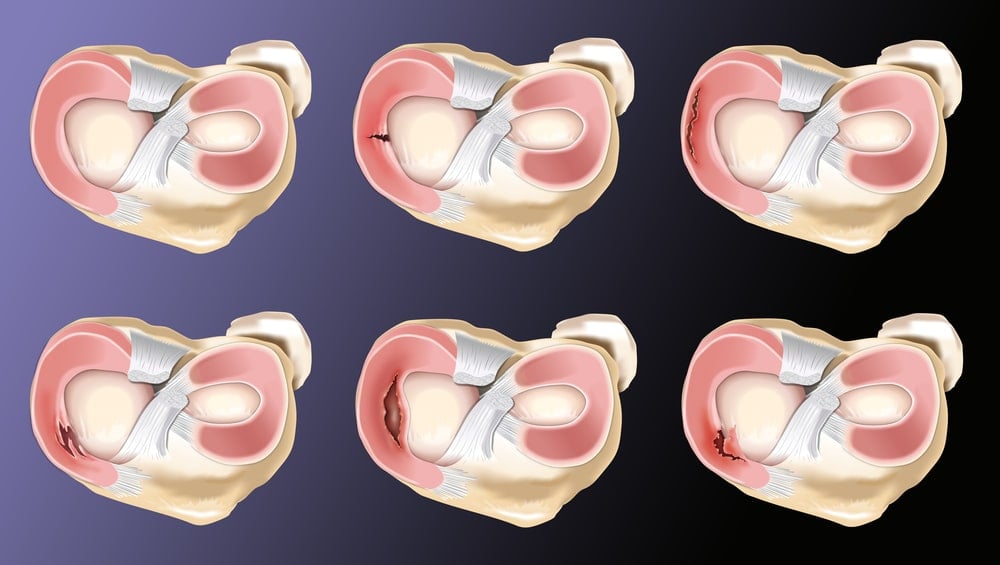
Treatment of Meniscus Tears In Golfers
The treatment of meniscus tears in golfers will depend on the cause of your tear and the type of tear that you have. Most of you will not have mechanical symptoms and will have a degenerative or complex tear, those tears can usually be treated with physical therapy alone. Most degenerative or complex meniscus tears do not require surgery in order to return to playing golf. There have been many research papers published on that topic over the past years. Surgery is often recommended for golfers with mechanical symptoms. 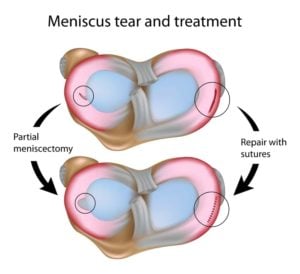
Meniscus Injury Precautions For Golfers
- Golfing requires a lot of pivoting and twisting. Recovery from your meniscus tear should be near complete before returning to competitive golf. Hackers can return to play when they are comfortable doing so. Physical therapy can be very beneficial in helping you recover your strength, endurance and flexibility after a meniscus injury.
- Practice on your lawn before heading out onto the course. Golfing puts a lot of stress on your meniscus.
- If your knee swells when you return to play. Consider playing 9, or taking a cart. Try not to return to play until the swelling subsides.
- If you experience instability or if your knee catches during your swing, you should communicate that to your doctor.
Can I Golf With A Meniscus Tear?
- When you return to the golfing, a good warm up is essential to decrease the risk of re-injury.
- Wearing a compression sleeve should help control any lasting discomfort.
- Rotating your forward leg outwards will decrease the stress on your knees when you swing.
- Use soft spikes. They will cut down on the torque when you come through the ball.
- Big shots will cause more force and more knee pain with a meniscus tear. Don’t play the tips. Your short game should hurt less. Choke up (club down) on your irons to lessen the force during your swing.
Meniscus injuries in golfers can cause significant pain. Many of you will recover from your tear without the need for surgery. Surgery might be worth considering for those of you with mechanical symptoms .. but that is a conversation for you and your doctor to make.
Do you have questions regarding an Orthopedic injury or longevity?
Do you want to talk to an expert who can listen to you for 45-60 minutes and explain the options in detail?
Dr. Howard Luks offers remote guidance sessions to review your X-ray or MRI images and explain your options.
Dr. Luks has also received hundreds of requests for educational sessions on the topics discussed in his book, Longevity Simplified.

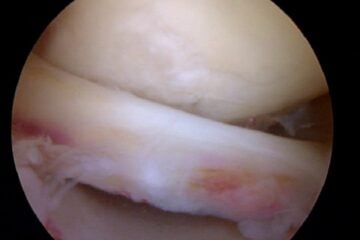
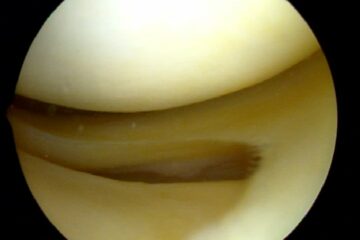
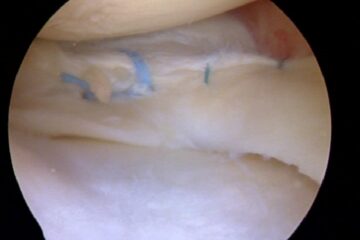
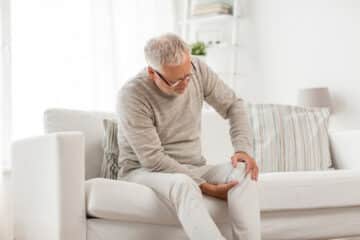








T. Cabral
My PCP sent me for an MRI because of knee pain. The MRI reports says “Acute nondisplaced oblique tear of the posterior horn of the medical meniscus.”
Do such tears heal by themselves? Is surgery inevitable?
He thinks it may heal by itself but it has been 45 days since the pain started. The pain has lessened a little.
I’m a senior citizen so I’m not sure if I should keep waiting for improvement or risk surgery.
I will greatly appreciate your comments.
thanks for being there!
Non harm in giving it more time to settle down. Physio might be a good option too. Talk with your doctor about it.